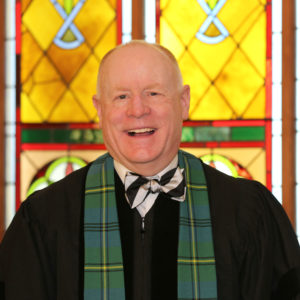Words Have Power
by Charlie Smith
As a former copy editor, I’m a words guy. Yet, through 20 years of ministry, I realize the transformative truth of Joseph Sittler’s quote, “When grammar cracks, grace erupts.” I appreciate the truth of the saying attributed to St. Francis, “Preach the gospel; if necessary use words.” I cling to the idea that we minister best as Spirit-led Pentecost people, recreating in our own contexts the story from Acts 2: Speaking in other languages, and still everybody understanding each other, even if they couldn’t translate the words.
I wish I was proficient at a foreign language. I remember precious little from high-school French. For three years in the 1990s, I lived in Germany. Though my reading knowledge of Deutsch was passable, I never could master conversations in the native tongue. As hard as I would practice the words I would need to ask a question of the bank teller, the immediate response was incomprehensible. The response from most Germans: “Let us speak English to you; we hate how you are butchering our language.”
Just hearing a language not English spoken can be exhilarating in and of itself. Even without knowing the words, you get the sense of what is being conveyed. Last week, hearing a prayer in Korean; the Spirit was so alive! (The same Korean speaker was asked about their faith journey: “How did you get to where you are today?” The answer was a reminder of the quirks of English and literal interpretation: “By foot, car and plane.”
This understanding-beyond-words is the lasting impression that I carry after I and the other mid-council leaders of the 11 presbyteries in the Synod of the Sun took part in a Border Encounter last month offered by the Trace Rios Border Foundation and Abara. Ours was a journey of discovery. It was a journey in which we were overfed with statistics and facts and figures, all designed to blunt the misinformation, heated rhetoric, performative political posturing and emotion that has led to a stalemate in this multilayered, complex, complicated crisis. More than that, it was a story of people; of one-on-one encounters, of stories shared and stories heard, of tears, and laughter and deep weariness and joy that transcended words, that beckons all of us to, in the words of a border guard-turned-shelter operator “do the right thing.”
Through my experience in El Paso, I rediscovered a universal language, even without words, and even in surprising ways. At a shelter in Juarez, in a dusty courtyard, trying to haltingly communicate and find common ground, the conversation – such as it was – took a turn into sports. Wearing a Texas Rangers baseball cap, I noticed across the way a man wearing another baseball cap, with a logo that I didn’t recognize. The eye contact, the hand gestures, the laughter, the energy, all conveyed that we were fans of the same sport – that we shared something in common. That led to an idea, shared silently for the most part: Swapping caps. I gestured with my hand toward my hat, then moved my hands in a circle. He understood, and a bond was formed. Baseball really is the universal language – even without words.
One shelter worker puts it simply: “These are not bad people. I cannot imagine walking more than 1,000 miles to come to this border. It means they had strong motivation. If they had fair conditions in their homelands, they wouldn’t migrate. Many of them are fleeing civil war. I do not understand the roots of this crisis. But whatever their reason, you cannot turn them back. We have to open our hearts to those people. We need compassion and mercy. We need to understand that they are human beings, and not simply label them as others.”

